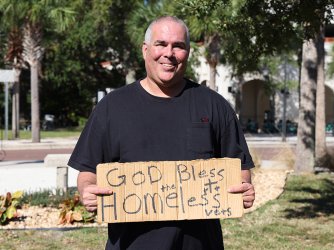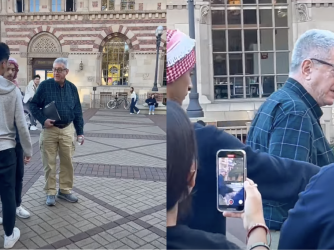Table of Contents
REPORT: Colleges forget their free speech promises when students study abroad

- Colleges must make clear the safety risks of students protesting, tweeting, or practicing their faith abroad — and the potential that they may be arrested, prosecuted, expelled from the country, or outside the reach of U.S. authorities.
- Study of top 100 colleges shows that institutions must work harder to prepare students for speech restrictions abroad.
PHILADELPHIA, Sept. 30, 2021 — Many colleges make laudable promises of free speech on campus. But do they still respect those promises when their students study abroad?
According to a new survey by the Foundation for Individual Rights in Education, the answer is “no” at many top colleges.
“Studying Abroad, Speaking Out” examines the study abroad policies and resources at 100 of the United States’ most prestigious colleges. The report addresses the policies and educational materials related to expression in American study abroad programs, including information about student rights abroad, limits on where students can study abroad, warnings against expressive conduct abroad, and policies governing students’ speech in study abroad programs. FIRE’s new report also includes recommendations for school administrators who wish to protect their students’ speech while acknowledging the challenges posed by speech restrictions in other countries.
“Ensuring students understand the censorship threats they may face abroad should be a basic priority for colleges with study abroad programs,” said FIRE Director of Targeted Advocacy and report author Sarah McLaughlin. “FIRE is here to help administrators navigate the complexities of protecting their students’ rights as they travel overseas.”
Of the 100 institutions surveyed, many rely on State Department resources about student travel and warnings about the risks of engaging in speech or protest abroad — but some also impose restrictive speech codes.
For example, 18 institutions, including Northwestern University and the University of California System, crafted their own policies that confusingly incorporate foreign laws into campus conduct policies or govern what students can say abroad, creating even more uncertainty for students about their speech rights. Some of these policies would clearly violate the First Amendment if applied in the United States. Michigan State University’s policy is one of them, asserting to students that “As a condition of participation in the Education Abroad program, you agree to not participate in and to avoid any demonstrations and protests.”
Thirty-nine institutions, including the University of Southern California and Carnegie Mellon University, warn students against certain kinds of expression abroad, especially speech on social media and at protests. USC advises students to “Avoid crowds, protest groups or other potentially volatile situations… Do not get involved in any social or political unrest or illegal movements, no matter how sympathetic you are with the cause or the people involved.” These policies, while presumably well-intentioned, don’t always provide the necessary information to help students understand their individual risk.
Each section of the report ends with a paragraph-long recommendation from FIRE. FIRE’s guidance urges administrators to be more proactive and transparent, and asks institutions to recognize the reality of speech-restrictive laws in other countries while still emphasizing the importance of speech in their messaging to students.
“Colleges are in a delicate position when coordinating student travel and programs overseas — but that does not mean that their own policies should mirror unjust overseas speech restrictions,” said McLaughlin. “Not every study abroad destination will be a haven for free expression, but school officials have a responsibility to prepare their students for travel in a way that sets accurate expectations and honors fundamental rights.”
The Foundation for Individual Rights in Education (FIRE) is a nonpartisan, nonprofit organization dedicated to defending and sustaining the individual rights of students and faculty members at America’s colleges and universities. These rights include freedom of speech, freedom of association, due process, legal equality, religious liberty, and sanctity of conscience — the essential qualities of liberty.
CONTACT:
Katie Kortepeter, Media Relations Associate, FIRE: 215-717-3473; media@thefire.org
Recent Articles
FIRE’s award-winning Newsdesk covers the free speech news you need to stay informed.


FIRE Statement: X Corp's lawsuit and Texas's investigation into Media Matters for America are deeply misguided

Anonymous speech is as American as apple pie
